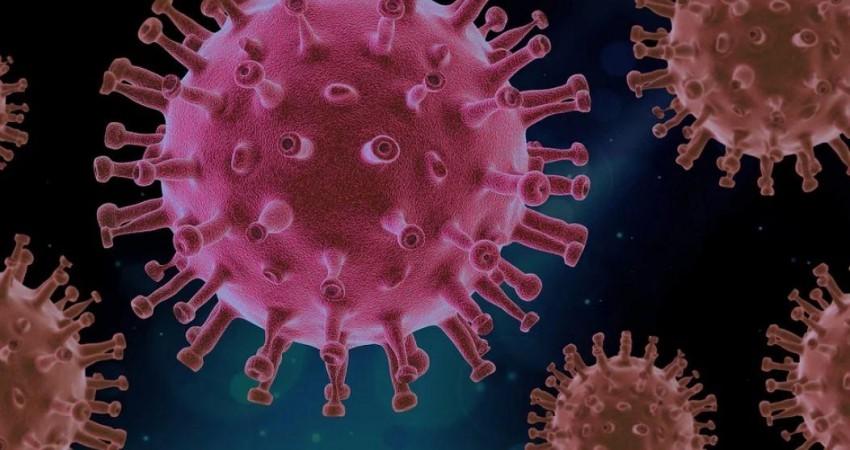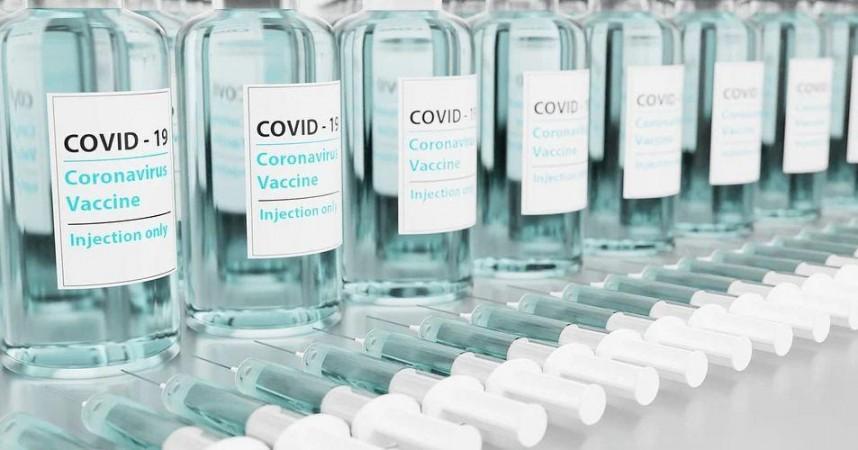Only days after the World Health Organization (WHO) deemed the double mutant variant of the SARS-CoV-2 found in India a global concern, the international body has said that the Pfizer and Moderna COVID-19 vaccines show limited effectiveness against the variant.
The WHO said in a note that preliminary laboratory studies have found that the mRNA vaccines from Pfizer and Moderna showed reduced effectiveness against the tricky variant discovered in India. B.1.617 (and its sublineages 1.617.1, B.1.617.2, and B.1.617.3)—the mutant variant—was categorized as 'variant of concern', or VOC, by the WHO earlier this week.
"Potential impacts of B.1.617 lineage on effectiveness of vaccines or therapeutics, or reinfection risks, remain uncertain. Preliminary laboratory studies awaiting peer review suggest a limited reduction in neutralization by antibodies; however, real-world impacts may be limited," the note stated.
Variant of Concern

While the first wave of the COVID-19 pandemic in India was less severe compared to several other countries, the second wave has devastated the South Asian nation. With 300,000-400,000 confirmed cases and 3,000-4,000 COVID-19 related deaths reported on a daily basis for the past few weeks, India is currently the worst affected nation in the world (only behind the US).
The B.1.617 lineage which was first discovered in October 2020 has been considered as one of the variants responsible for the disastrous second wave that struck India this year. Considered more transmissible than the original Wuhan virus, B.1.617 has been already been detected in 44 nations. Along with the UK (B117), South African (B1351), and Brazilian (P1) variants, B.1.617 forms WHOs list of variants of concern (VOCs).
Challenging Vaccines' Effectiveness
In the note, the WHO cited studies that demonstrated the decreased effectiveness of the said vaccines in neutralizing B.1.617. One of the studies was carried out by an international team of researchers from CSIR Institute of Genomics and Integrative Biology, National Centre for Disease Control, and University of Cambridge, among others. The study, that is awaiting peer review, found that Pfizer- BioNTech vaccine displayed a reduction in neutralizing activity against variants carrying the E484Q mutation (found in the sublineages B.1.617.1 and B.1.617.3)

Another cited study, a collaboration between Emory University School of Medicine, Stanford University School of Medicine, and Vaccine Research Center (under National Institute of Allergy and Infectious Diseases), tested the function of Pfizer- BioNTech and Moderna vaccines against the B.1.617.1 strain. The study (awaiting peer review) found that the variant was nearly seven times more resistant to neutralization by the two vaccines. However, in spite of increased resistance, the vaccines were still able to nullify the mutant strain in all the participants.
A third cited study reported a nearly three-fold decrease in neutralization activity against B.1.617 in the plasma of participants who had received Pfizer's vaccine. Also, a limited two-fold reduction was also noted in convalescent sera (blood serum samples) from cases with acute COVID-19.
However, a fourth study referenced by WHO, noted that the Bharat Biotech-made Covaxin maintained its effectiveness against B.1.617. The non-peer-reviewed study by researchers from the Indian Council of Medical Research, National Institute of Virology, and Bharat Biotech reviewed limited convalescent sera samples from individuals inoculated with Covaxin and of COVID-19 cases. It concluded that Covaxin retained most of its neutralizing properties against the mutant variant.
A Tricky Situation

The note comes at a time when India is reeling under the pressure of vaccine shortage. Only two homegrown vaccinations—Covishield and Covaxin—are shouldering the burden of inoculating a population of 1.3 billion. Recently, the Indian government had agreed to fast-track emergency use approval (EUA) of vaccines that have already received approval by agencies in other countries. This was done in order to augment "the Basket of Vaccines available for fighting the pandemic" and maximize vaccination coverage.
EU has already approved the use of Moderna and Pfizer- BioNTech vaccines. The US Food and Drug Administration (FDA), while not approving either of the vaccines, has provided EUA for both of them. The WHO itself has approved the emergency use of the Moderna vaccine.
According to latest reports, the NITI Aayog (a public policy think tank of the Government of India) said that several Indian government agencies have been in discussion with Pfizer, Moderna, and, Johnson and Johnson in order to make vaccine doses widely accessible to all Indian citizens.
In a media briefing, Dr. V.K Paul. Member, NITI Aayog, said, "We invite them to manufacture here along with our companies. Johnson & Johnson did a good job, they accepted this offer under Quad." He also added that Pfizer and Moderna "working in their own way" and that the companies would discuss vaccine availability in the third quarter of Q3 2021.












